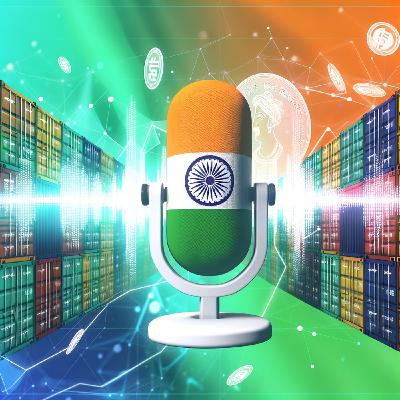US Implements Sharp Tariffs on Indian Pharmaceuticals and Goods Sparking Diplomatic Tensions and Trade Negotiations
Update: 2025-10-06
Description
Listeners, today’s biggest story involves fresh tariffs by the United States that are sending ripples across global trade, and especially through India’s export sector. On October 1st, 2025, the U.S. government implemented major new import tariffs on specific foreign goods. According to The Legal, the new tariff rates are sharp: branded and patented pharmaceutical products are now facing a 100% import tariff, heavy trucks are set at 25%, upholstered furniture at 30%, and kitchen and bath cabinets at 50%. While there is a carve-out for generic drugs, and the majority of these generics—nearly 90% prescribed in the U.S. and heavily manufactured in India and China—are exempt, the impact on India’s pharmaceutical exports and medical device industry will be substantial, especially for patented and premium segments.
Fortune India reports that these tariffs come as negotiations between India and the United States continue to struggle for a “landing ground” that preserves India’s strategic interests, especially for farmers, small industries, and fishermen. External Affairs Minister S. Jaishankar publicly asserted that India will not compromise its “red lines” in trade, responding directly to Donald Trump’s latest tariff push by insisting on fairness and mutual respect in trade agreements. The Times of India notes Trump’s administration imposed a 50% tariff on select Indian goods, 25% of which singled out Indian purchases of Russian oil. These moves have added layers of complexity to U.S.-India relations and have led to calls for India to diversify not just exports but its global partnerships.
Firstpost highlights Jaishankar’s criticism of these tariffs as “unfair,” reiterating that any bilateral trade deal must respect the bottom lines crucial for India’s national interests. He stressed ongoing talks since March, signaling that while the overall working relationship with Washington remains stable, trade remains the biggest sticking point. The current mood in New Delhi is clear: India is seeking a fair resolution and is not afraid to put its foot down.
YIP Institute’s recent policy analysis points out that instead of strengthening domestic supply chains in the U.S., these expanded tariffs on pharmaceuticals, APIs, and medical devices from India have strained global healthcare supply, increased drug prices in the American market, and hampered access for vulnerable U.S. communities.
Listeners, the way forward is still being negotiated. The next few months will likely bring even more drama as officials on both sides try to chart a path that respects national bottom lines, keeps supplies flowing, and prevents further escalation.
Thank you for tuning in and don’t forget to subscribe. This has been a quiet please production, for more check out quiet please dot ai.
For more check out https://www.quietperiodplease.com/
Avoid ths tariff fee's and check out these deals https://amzn.to/4iaM94Q
This content was created in partnership and with the help of Artificial Intelligence AI
Fortune India reports that these tariffs come as negotiations between India and the United States continue to struggle for a “landing ground” that preserves India’s strategic interests, especially for farmers, small industries, and fishermen. External Affairs Minister S. Jaishankar publicly asserted that India will not compromise its “red lines” in trade, responding directly to Donald Trump’s latest tariff push by insisting on fairness and mutual respect in trade agreements. The Times of India notes Trump’s administration imposed a 50% tariff on select Indian goods, 25% of which singled out Indian purchases of Russian oil. These moves have added layers of complexity to U.S.-India relations and have led to calls for India to diversify not just exports but its global partnerships.
Firstpost highlights Jaishankar’s criticism of these tariffs as “unfair,” reiterating that any bilateral trade deal must respect the bottom lines crucial for India’s national interests. He stressed ongoing talks since March, signaling that while the overall working relationship with Washington remains stable, trade remains the biggest sticking point. The current mood in New Delhi is clear: India is seeking a fair resolution and is not afraid to put its foot down.
YIP Institute’s recent policy analysis points out that instead of strengthening domestic supply chains in the U.S., these expanded tariffs on pharmaceuticals, APIs, and medical devices from India have strained global healthcare supply, increased drug prices in the American market, and hampered access for vulnerable U.S. communities.
Listeners, the way forward is still being negotiated. The next few months will likely bring even more drama as officials on both sides try to chart a path that respects national bottom lines, keeps supplies flowing, and prevents further escalation.
Thank you for tuning in and don’t forget to subscribe. This has been a quiet please production, for more check out quiet please dot ai.
For more check out https://www.quietperiodplease.com/
Avoid ths tariff fee's and check out these deals https://amzn.to/4iaM94Q
This content was created in partnership and with the help of Artificial Intelligence AI
Comments
In Channel





